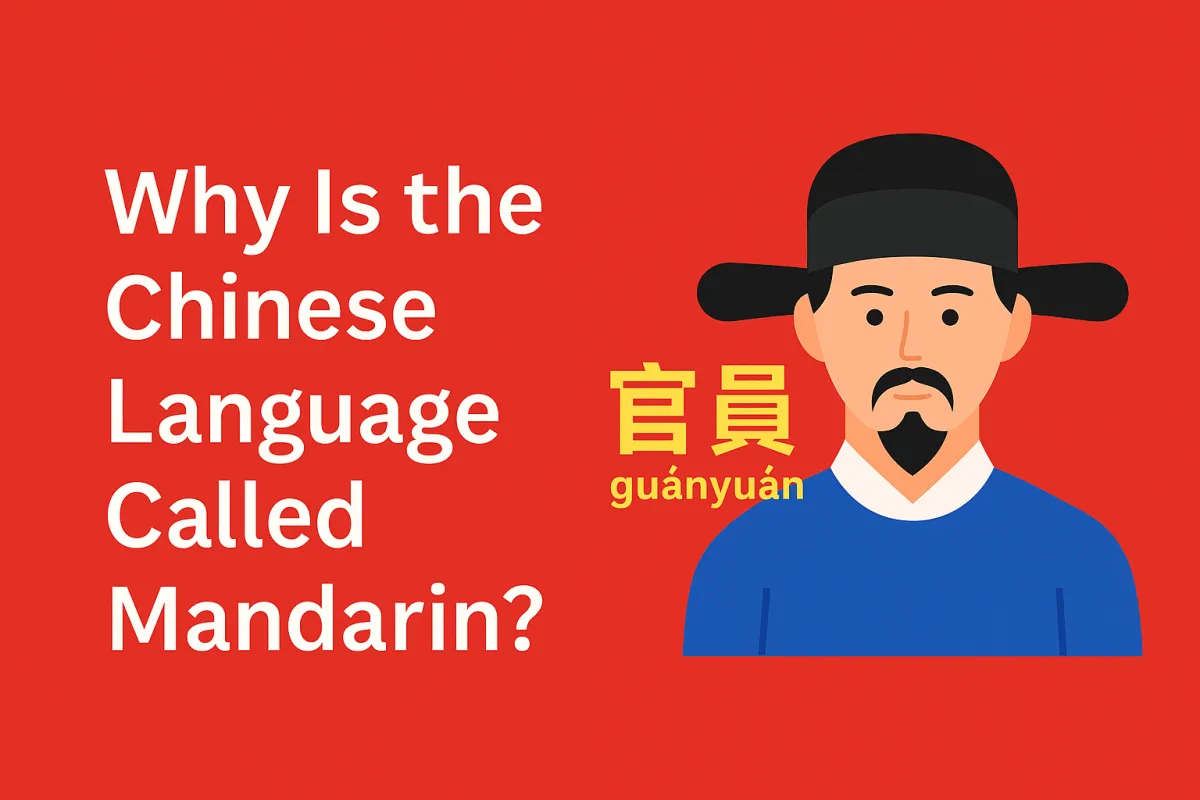
Why Is the Chinese Language Called Mandarin?
Why Is the Chinese Language Called Mandarin?
When people talk about learning "Chinese," they often mean Mandarin—but why is the Chinese language commonly referred to as Mandarin in the first place? The answer lies in history, geography, and the need to standardize communication across a vast and linguistically diverse country.
What Is Mandarin, Really?
Mandarin is one of the many languages within the Chinese language family. It is the official language of China, known in Chinese as:
普通话 (Pǔtōnghuà) – “common language” (used in Mainland China)
国语 (Guóyǔ) – “national language” (used in Taiwan)
华语 (Huáyǔ) – “Chinese language” (used in Singapore and Malaysia)
Mandarin is the most widely spoken variety of Chinese and serves as the lingua franca across regions that speak different local dialects.
So, Why the Name "Mandarin"?
The term "Mandarin" comes from the Portuguese word "mandarim," which was used to describe imperial Chinese officials. These officials were known in Chinese as 官员 (guānyuán) and spoke a form of the northern Chinese dialect to communicate within the government.
The Portuguese encountered these officials during trade in the 16th century and began using the word “Mandarin” to refer both to the officials and the language they spoke.
So over time, "Mandarin" came to refer to the official spoken language of the Chinese empire, especially the dialect used in Beijing and northern China.
Mandarin vs. Other Chinese Languages
China is home to a diverse range of spoken Chinese languages, many of which are mutually unintelligible. These include:
Cantonese (spoken in Hong Kong and Guangdong)
Hokkien (popular in Taiwan and Southeast Asia)
Hakka, Shanghainese, Xiang, and others
The need for a standard national language grew over time, especially after the fall of the Qing Dynasty and the founding of the Republic of China in 1912. Mandarin—specifically the Beijing dialect—was chosen as the basis for this standard due to its political and cultural prominence.
Why People Say "I’m Learning Chinese" But Mean "Mandarin"
When people say they’re learning “Chinese,” they usually mean Mandarin, because:
It is the official language of China and Taiwan
It is taught in schools and universities worldwide
It is used in business, media, education, and international communication
It uses Simplified Chinese characters (in most places), which are more accessible for learners
So while Mandarin is one type of Chinese language, it has become the global face of Chinese for learners and institutions alike.
In Summary
The word "Mandarin" comes from Portuguese and originally referred to imperial officials.
The language of those officials became associated with the term "Mandarin."
Mandarin is now the official and most widely spoken form of the Chinese language.
When people say “Chinese language,” they often mean Mandarin, but Chinese includes many other languages as well.
